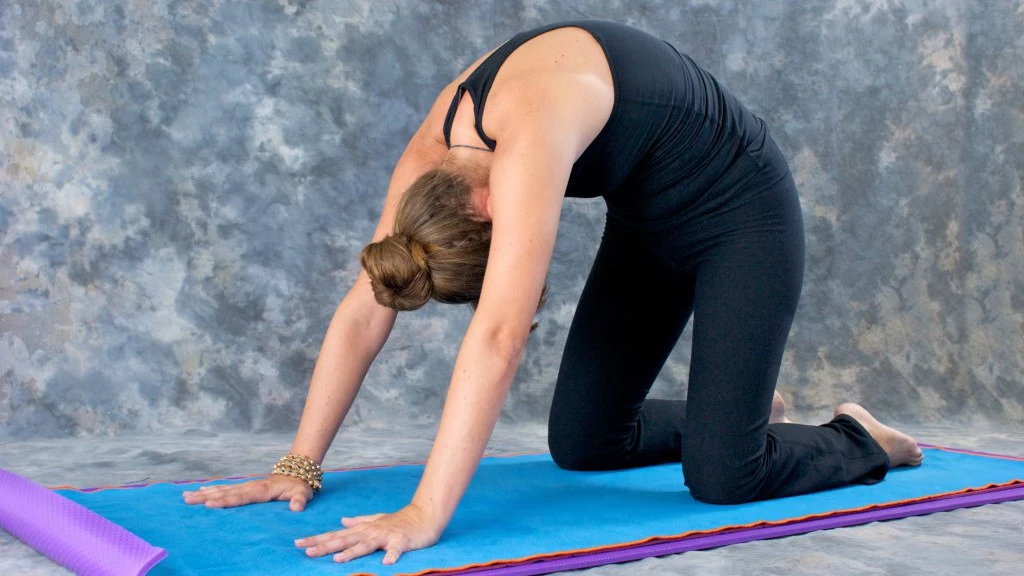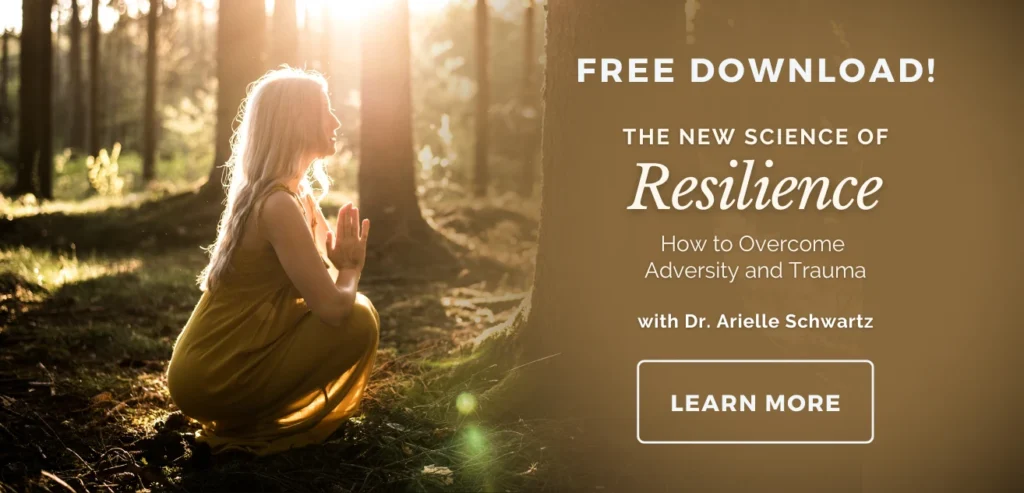Soothing the Spirit: An Interview with Robin Rothenberg

In this interview with YogaUOnline, Robin Rothenberg, founder of Essential Yoga Therapy, discusses ways in which yoga can help us become more aware of mental patterning that work against, instead of for us. Also check out Robin’s webinar on Yoga U.
Yoga U: Robin, you have been practicing yoga for most of your adult life, and have taken more than six or seven different yoga teacher training programs. It’s clear that yoga is a great passion of yours! Tell us about how you got started and what spurred your enthusiasm for yoga.
Robin Rothenberg: Well, when I started practicing yoga, I was a basket case. I hurt all over, I had absolutely no energy, and I had two babies. If it were today, the condition would likely have been diagnosed as fibromyalgia and chronic fatigue, but back then, no one knew about those terms.
Then, I started doing yoga. My first exposure to yoga was Iyengar yoga. I started in a gentle yoga class, because that felt like all I could do. Within the next 24 hours, I experienced this wonderful surge of energy, where I didn’t feel so wiped out, and I didn’t hurt so much. So I quickly became a big fan of yoga, and then started going to classes two times a week and then three times a week.
Within a year, I felt like I was waving a little white flag saying, “Okay, I get it. I just have to do yoga for the rest of my life to feel healthy.” And at that point, I embarked on the first of something like six or seven teacher training programs, so that I could learn more, and share what I was learning and experiencing with others.
The whole experience really inspired me to look more deeply into how I was living my life, including the importance of diet and lifestyle for health. Everything affects how we feel. And that transformed just about everything – my relationships, the way I parented, everything.
Yoga U: So it sounds like your interest in yoga was inspired by your own experience of the health benefits, which is so often the case. Is that what led you to be interested in viniyoga and yoga therapy?
Robin Rothenberg: Well, I was always drawn to the people who knew a lot about the body, who did a lot of adaptations of yoga poses, and who could give very grounded explanations for why one person would need to do the pose in one way and another person another way. That always made sense to me—there just isn’t a one-size fits all approach to yoga.
In my earlier years, the people who had the most impact on me were Judith Hanson Lasater and Ramanand Patel, who is a senior Iyengar yoga teacher, who also is very adept with yoga therapeutics.
Then I went to the first Yoga Journal conference in ’92, and I sat in on a Sutra class with Gary Kraftsow. Gary’s class was on the Yoga Sutras, and he was talking about the importance of our willingness to transform habitual patterns that lead to suffering and about cultivating the capacity for self-awareness about how our thought patterns lead to suffering. He was talking about how yoga is a means to see ourselves more fully, with appreciation, gratitude, and acknowledgment that it’s not all about us, and that we are supported by this source of universal energy.
As Gary spoke, the tears started flowing and I just felt like, okay, this is what I’ve always felt yoga is about, but none of my teachers have been talking about this. They’re just telling me I have to put my pinkie finger in this position in Downward Dog, like that’s what it’s about. And it’s not about that for me.
I realized that I really wanted more of that deeper understanding of the inner transformation of yoga, beyond the musculoskeletal positions, the postures, and even the fine tuning of adaptation of posture. I wanted more of that.
That was a life-changing moment for me, a real watershed moment. At that point, I was a certified Iyengar teacher, and I started studying with Gary and went through his viniyoga training. He and I worked very closely together; I went through his therapist training as well, and assisted him with his therapist training as it was evolving. And of course, we co-wrote the protocol for Karen Sherman’s study on yoga for back pain together. So the transition from Iyengar to Viniyoga was a huge turning point in my yoga practice and teaching.
Yoga U: On your website, you say that we all have a responsibility for reducing suffering in ourselves and then going on to assist in the healing of others. Do you feel that yoga offers a particularly useful path to be able to do that?
 Robin Rothenberg: I’m a big believer that yoga is an inside job. As yoga teachers, we’re practitioners and students first, teachers second. The best teachers are the most avid students, who are doing their own personal work.
Robin Rothenberg: I’m a big believer that yoga is an inside job. As yoga teachers, we’re practitioners and students first, teachers second. The best teachers are the most avid students, who are doing their own personal work.
Studying the Yoga Sutras, working with pranayama and meditation, and working with Vedic chanting really helped me personally to shake me free of beliefs and patterns that were causing a lot of suffering for me and for the people I lived with. It helped me become wiser and more compassionate with myself, much more open and positive about things.
Yoga U: Can you share an example of that experience?
Robin Rothenberg: Well, I’m going to tell a story from two different perspectives, yet both are true. The first perspective is that I had a lousy childhood. My mother was clinically depressed; my father, was a driven perfectionist with bad temper, who tended to be physically and verbally abusive. That’s the environment I grew up in. I could never get it right, never be good enough, all of that. I carried that with me through my twenties and through part of my thirties.
The other story is that my mother, by the time she reached middle age and I had young children, was the most loving and wonderful grandmother. She had really grown tremendously.
At one point, she said to me, “You know, Robin, I have done everything I can to make up for what I didn’t give you when you were a child. I know I wasn’t the best mom, but I’m doing the best I can now to provide a loving support for you and the girls. If it’s not good enough, I’m afraid I’m going to have to pull out of the relationship, because it’s too painful for me. There’s nothing more I can do.”
And at that moment, I realized I was the one who was holding on to the past and not allowing her or our relationship to evolve and be in the present.
In the same way, my father is now one of the most loving, supportive, compassionate people. He’s one of my best friends. My granddaughter, his great-granddaughter, adores him. My children adore him. My husband adores him. He’s a very loving and wonderful man and is deeply apologetic for years that he pushed himself and he pushed all of us kind of over the edge.
So there is a tremendous amount of growth in them, and in my ability to make peace. It’s not that the past isn’t true, but I don’t hold on to that. I don’t hold a sense of being a victim of that childhood or being an abused person. Overall, I feel the compassion that has grown in me with the realization that we have the capacity within us to be the best of people and the worst of people.
The truth is that we’re complex. The more compassion and warmth and honesty that we bring to the table, the more we can truly help ourselves, support ourselves in transformation as well as other people.
Yoga U: Yoga has this wonderful concept of creating space or stepping into the witness, where we increasingly are able to look at our own emotional and mental reactive patterns.
Robin Rothenberg: Exactly. I don’t think I would’ve really understood what my mother was saying if I hadn’t started yoga at that point. I had the ability to say, “Oh, I’m not holding present time reality. I’m living in a past reality and she’s inviting me to join her in the present. If I look at her through the lens of the present, there’s nothing wrong here. This is really a beautiful relationship that is evolving.”
Yoga U: In your webinar on Yoga U, you’re focusing on how to deal with those patterns of emotional angst, worry, stress, and anxiety that we all struggle with from time to time. You say that certain yoga techniques can help rewire your set points so you’re less likely to react to a stimulus the way you would previously have flown off the handle. Can you elaborate a bit on that?
Robin Rothenberg: I teach from the foundation principles of the Yoga Sutras. The Yoga Sutras are all about how to transform our mind, so that we stop creating suffering at the root source, which is in the field of the mind.
Looking at everything through that lens, we can see how our perception colors our reality. As that famous yogi, Mark Twain, said, “We see the world not as it is but as we are.”
Asana can be done in a very introspective way to help us to see our patterns. Our breathing patterns are even more subtle, however, and are more closely linked to our nervous system. And of course, our thought patterns are even more subtle.
When we become more observant of our breath patterns, our thought patterns, and our emotional patterns, we can start to see how some of those patterns really are like pouring kerosene on the fire, as opposed to cooling the fire of our emotions down.
We often have these emotional responses to things that are well beyond what is really being called for in the moment. The yoga practices are about regulating our own nervous system, taking charge of our nervous system, recognizing when things are revving us up unnecessarily, and then using our breathing practices or physical movement practices to discharge that tension, whether that means doing your yoga asana practices or going for a vigorous walk or run.
And, it’s one thing to discharge that physical tension, but you can go deeper and say, “What are the thought patterns that are circulating, that are continuing to throw kerosene on this fire, as opposed to cool it down?” That can help us make more conscious choices about how we really want to proceed, and get us back to our innate wisdom. I strongly believe that is what Patanjal’s Yoga Sutras and the ancient wisdom teachings are all about—helping us to find our way back to our own innate wisdom.
Yoga U: How will you work with people in the webinar to help create a framework for working more consciously with those kind of mental or emotional patterns?
Robin Rothenberg: In my own experience, I find that that education about how the practices of yoga impact the physiology, the nervous system, the digestive system, the cardiovascular system, and the respiratory system are a useful tool to feel more empowered in utilizing the practices of yoga. It’s useful to know why these practices feel so good; it’s because you’re actually changing the physiology.
So we’ll take a look at what happens in the brain when we get hijacked by emotion, and how yoga practices interrupt those processes and get us back on track.
We will go one step further by working deeply with some specific practices that I’ll be outlining in the video that accompanies the webinar, where we will play with this whole idea of perspective. We’ll be exploring how using our yoga practices to keep our nervous system calm, we can actually revisit some of those emotional trigger points, but from a slightly different perspective, and start to open up the space around how we’re holding feelings.
I’ll also be sharing the teachings about Yoga Nidra. My new CD, Soothing the Spirit, which is a Yoga Nidra specifically targeted to reduce anxiety. That is a little redundant, because Yoga Nidra in general is really oriented towards calming the nervous system and reduce anxiety.
We’re stepping away from the things that make us feel anxious and then stepping towards them to start to build our resilience. Yoga is not about rainbows and sunshine. It’s really about cultivating courage and developing our resilience so that we can handle the things that are challenging with more equanimity. It’s not about just putting ourselves in a little bubble room, where we only have the vegetarians and the soft music and the people who agree with us. It’s about being able to step out into the world with a real sense of centeredness, grace, receptivity, and not feeling fearful or vulnerable, because we’re solid inside.
That’s what I’m hoping to share in the webinar – how to pull on specific yoga practices to work with the mind-body connection to reformat our thinking and create a broader base of understanding, and a greater capacity to take on the adversity that is a part of life. Life has a lot of challenges. So we want to help ourselves to have the great flexibility of mind that enables us to ride the waves of life and not get pulled under.
So in short, the webinar will provide a resource for people, who are interested in learning more about the possibilities that yoga has both for health and healing, and for growth and transformation in life.



